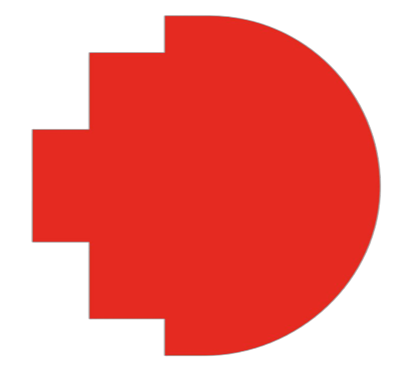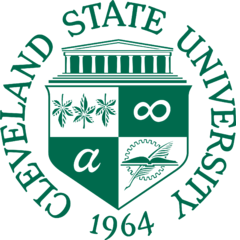📖Program Curriculum
YEAR 0
Foundation
Semester 1
Compulsory
Physics - Mechanics and Materials
Essential Foundation Mathematics
Communication in Science & Technology
Mathematics B (double module across Semester 1 and 2)
Semester 2
Compulsory
Physics- Fields and Waves
Physics - Electricity and Atomic Physics
Introduction to Engineering
Mathematics B (double module across Semester 1 and 2)
Please note that all modules are subject to changeYEAR 1
In Year 1, you’ll build a foundation in fundamental engineering concepts such as design, materials, mechanics and mathematical modelling. We have introduced modern computation which is used as an engineering and scientific tool by including the use of Python from your first year. You will be introduced to Biomedical engineering throughout all the modules, specifically, in our ‘Explore Biomedical Engineering’ module, where interesting case studies are developed. Two practical modules in Design and Experimental Practice, will help you to develop the workshop and laboratory-based skills, and will put concepts into perspective and to practical use.
Engineering Design
Experimental Design and Practice 1
Computational and Mathematical Modelling 1
Materials Engineering
Exploring Biomedical Engineering
Experimental Design and Practice 2
Materials Chemistry
Fluid Mechanics and Thermodynamics
Please note that all modules are subject to change.YEAR 2
The 2nd year will cover a combination of specialist biomedical engineering modules and broader engineering topics. These will develop your knowledge of relevant biomedical engineering applications linked to some of our own ground-breaking research.
Neuromechanics and Bioelectricity of Movement
Materials for Biomedical Applications
Cardiovascular Fluids
Applied Solid Mechanics
Instrumentation and Measurements
Numerical Methods and Data Science in Engineering
Process Control
Designing for Sustainable Manufacture
Please note that all modules are subject to change.YEAR 3
You’ll have the option to advance your understanding during Year 3 in modules. The third-year design project will provide an opportunity for you to concentrate on your interests, whilst working on an industry-focused area in collaboration with our world-leading researchers.
Design Project (30 credits)
Biomedical Device Development
Simulation Tools in Engineering Analysis and Design
Elective Modules:
Tissue Engineering and Regenerative Medicine
Biocompatibility
Cell and Tissue Mechanics
Processing and Analysis in Biomedical Imaging
Aspects of Robotics
Sustainability Assessment for Design
The design project provides an opportunity for students to get involved with the exciting research taking place in the School. The project allows students to apply the skills and techniques learnt from previous years’ studies and to focus on an area that particularly interests them.
Recent projects have included:
Optimization of a sports wheelchair
Design of a glove to stabilize hand tremors in Parkinson's Disease
Effect of age on tendons
Testing of novel therapies on cartilage cells using robotic confocal imaging
Molecular signalling of circadian rhythm and impact on human health
Design of tissue engineering therapies using gelatin/genipin soft scaffolds
Design of drug-delivery capsules controlled by magnetic stimulus
Please note that all modules are subject to change.YEAR 4
MEng only
Students on the MEng degree will work with research and industry-led teams, and in partnership with clinicians, to solve real-world biomedical engineering research and design problems. You will have options to study from a range of modules based around our research strengths: bioprinting, sensors, robotics, organ on a chip, artificial intelligence related to health.
Recent projects have included:
Development of a skin organ-on-a-chip model for drug testing
Design of robotic head with binocular vision
Design of a device for training clinicians in diagnosis of bladder dysfunction
Development of an organ-on-a-chip model of osteoarthritis
Developing Computational Fluid Dynamics to be clinically useful:
Determining Ultrafast Flow, Pressure Drop and Shear Stress calculations using Artificial Intelligence
Microfluidics to capture cancer cells in blood circulation
Development of Hydroxyapatite-Polymer Bone Graft Substitutes for Controlled Drug-Release
Understanding and improving subcutaneous injections with Pfizer autoinjectors
Optional modules covering a range of topics including:
Machine Learning for biomedical engineering
Digital Manufacture for Healthcare Innovations
Medical Ethics and Regulatory Affairs (regulatory legislation for approval of medical products/devices, clinical trials)
Computational Engineering
Engineering Design Optimisation and Decision Making
Nanotechnology and Nanomedicine
Clinical Biomedical engineering; applications in Urology (bladder mechanics and urodynamics, urological tissue engineering, implantable devices)
Medical Robotics and Surgical Techniques
Introduction to Systems Engineering
Computational Fluid Dynamics
Clinical Measurements and Sensors
Tissue Engineering and Regenerative Medicine*
Biocompatibility*
Cell and Tissue Mechanics*
*if not taken in year 3
Please note that all modules are subject to change.
Show less








